This article was co-authored by Peter Gardner, MD. Peter W. Gardner, MD is a board certified physician who has practiced Gastroenterology and Hepatology for over 30 years. He specializes in diseases of the digestive system and liver. Dr. Gardner earned his Bachelor’s degree from the University of North Carolina and attended Georgetown Medical School. He completed his residency in Internal Medicine and then his fellowship in Gastroenterology at the University of Connecticut. He is a previous Chief of Gastroenterology at Stamford Hospital and remains on the staff. He is also on the staff of Greenwich Hospital and New York (Columbia) Presbyterian Hospital. Dr. Gardner is an Approved Consultant in Internal Medicine and Gastroenterology with the American Board of Internal Medicine.
There are 17 references cited in this article, which can be found at the bottom of the page.
wikiHow marks an article as reader-approved once it receives enough positive feedback. In this case, 83% of readers who voted found the article helpful, earning it our reader-approved status.
This article has been viewed 68,733 times.
Gastritis is the inflammation of the mucous membrane that lines the walls of the stomach. You can experience gastritis as a sudden, occasional ailment (acute gastritis), or as a more severe, long-term illness (chronic gastritis). Acute gastritis can be caused by NSAID pain medications, excessive alcohol consumption, and stress.[1] Chronic gastritis is commonly treated with a regimen of antacids and antibiotics.[2] Diet is also a key factor in treating acute and chronic gastritis. Modifying your dietary habits will help you avoid an upset stomach and heartburn and will also protect your digestive system from gastritis.
Steps
Treating Acute Gastritis
-
1Limit your use of painkillers.[3] Using NSAID painkillers can result in gastritis and ulcers and can reduce a substance called prostaglandin that protects the stomach. If you are taking non-steroidal anti-inflammatory drugs (NSAIDs) like aspirin or ibuprofen for pain control, ask your doctor how to transition off of the drugs. Acute gastritis can also be caused by taking steroids (whether legal or illegal).[4]
- If you are hurt or undergo surgery and need to take something for the pain, ask your doctor to prescribe you an alternative to NSAIDs.
- Even if you don’t already have gastritis, try to take as small of a dosage of an NSAID as possible to stop your pain or inflammation. For most NSAIDs, this means that you shouldn’t exceed 4 doses per day.
- Never continue the daily use of an NSAID for over 2 weeks, unless recommended by your doctor.[5] Your doctor can prescribe enteric coated NSAIDs, which can help to protect your stomach lining. Another option is to vary the medications you use for pain, such as alternating NSAIDs with acetaminophen.[6]
-
2Take antacids to relieve pain from gastritis.[7] Antacids are almost always sold over the counter (OTC), and include medications with milk of magnesia or aluminum. Antacids neutralize the acid in your stomach and so decrease the pain from gastritis. Common types of OTC antacids include Tums, Pepto-Bismol, and Alka-Seltzer. When taking this type of medication, always follow the directions printed on the label.[8]
- If these mild antacids aren’t strong enough to cure your gastritis, a doctor can prescribe you something that will decrease or neutralize acidic secretions and effectively protect the mucosae.
Advertisement -
3Take a proton pump inhibitor (PPI) to decrease your stomach’s acid production. PPIs are a class of medication which block acid from being secreted into your stomach. As a result of the decreased stomach acid, your stomach may be able to repair its damaged lining.[9]
- Common over-the-counter PPI medications include Omeprazole and Lansoprazole. Follow the directions printed on the packaging regarding your daily dosage.
-
4Avoid consuming more than 1 or 2 alcoholic drinks daily. Drinking an excessive amount of alcohol erodes the stomach's mucous membrane and increases the production of gastric acids.[10] As a general rule of thumb, when trying to drink moderately, restrict your daily alcohol consumption to 1 drink for women and to 2 drinks for men. You can also dilute strong drinks with ice or soda water to dilute the concentration of alcohol as it enters your stomach.[11]
-
5Manage stress to decrease the symptoms of acute gastritis. Emotional or nervous gastritis is an acute illness experienced by people under high levels of stress. Stress increases the production of gastric acid and deteriorates the stomach's mucous membrane. To reduce the amount of stress in your day-to-day life, try to avoid people, places, or situations that stress you out. To decrease your daily stress, also try to:[14]
- Exercise at least 2-3 times a week. Physical activity stimulates the production of endorphins, which will raise your mood and decrease stress.[15]
- Meditate once a week. Nowadays, you can find a wide variety of information, products and courses related to meditation through online and community resources. If that isn't your style, just take a few minutes each day to enjoy a personal moment of peace and quiet.
- Try aromatherapy. Dab a few drops of an essential oil onto a cotton ball and inhale. The aroma from essential oils can improve your mood and reduce stress. Try angelica, spearmint, and lavender essential oils in order to better control your stress level.
Treating Chronic Gastritis
-
1Describe your medical history to your physician. If you suspect that you’re experiencing chronic gastritis, schedule an appointment with your primary care physician. Describe your stomach symptoms, including the severity of any pain, how long the pain lasts, and how many weeks or months you’ve been experiencing pain for. Also mention any prescription (or non-prescription) meds that you’re taking.[16]
- In cases of prolonged use of NSAIDs, chronic bile reflux, HIV/AIDS, and Crohn's disease, chronic gastritis is more likely to be severe.
- If you have one of these conditions, undergo medical treatment to control the illness, and then talk with your doctor about how to medically manage chronic gastritis.
-
2Receive an endoscopy to detect chronic gastritis. Sometimes chronic gastritis cases are caused by the presence of bacteria called Helicobacter pylori, which can be identified via an endoscopic biopsy.[17] During an endoscopy, the doctor will insert a plastic tube down your throat and into your stomach, in order to extract a sample of your stomach bacteria.[18]
- You might experience mild discomfort during the procedure. However, it won’t be painful, and should be over within 10-15 minutes.
- If your doctor would like to detect H. pylori without an invasive endoscopy, they may ask you to drink a small glass of radioactive fluid. You’ll then exhale into a bag, which will be sealed and sent to a laboratory. A lab analysis will confirm or deny the presence of H. pylori.
-
3Ask your doctor about antibiotics to stop a bacterial infection. If your doctor does detect H. pylori (or another bacteria that causes gastritis) in your stomach, they can prescribe an antibiotic to clear out the bacteria. Commonly prescribed antibiotics include Amoxicillin, Clarithromycin, or Metronidazole.[19]
- Doctors commonly prescribe a proton pump inhibitor (PPI) along with 1 or more antibiotics to cure gastritis as quickly and efficiently as possible.
-
4Take a histamine (H-2) blocker to heal your gastritis. H-2 blockers cut back on the amount of acid that your digestive tract releases. Less acid in your stomach will decrease the pain caused by gastritis and should also let your stomach heal. These drugs can be available either over the counter or by prescription, depending on the strength of the dosage. Talk to your doctor to find out if a H-2 blocker will help cure your chronic gastritis.[20]
- Commonly prescribed H-2 blockers include Zantac (ranitidine), Pepcid (famotidine), and Tagamet (cimetidine). As with other medications, follow the suggested daily dosage printed on the packaging.
Eating Well to Cure Gastritis
-
1Eat several small meals spaced throughout the day. Eating 4-5 small meals during the day, each spaced out by 2 or 3 hours, will let your stomach digest moderate amounts of food with relatively little strain. This will limit your stomach’s acid production and should allow your stomach to heal from gastritis. Eating small meals—and just eating less in general—will also decrease your pain from gastritis (or heartburn).[21]
- Also avoid eating for 2 hours before bedtime, since your stomach will produce more acid when digesting food at night.
- If you get the majority of your calories from low-quality, processed foods, try to eat more high-quality whole and natural foods.
-
2Avoid spicy, greasy, or acidic foods that irritate your stomach lining. Hot spices and condiments stimulate the production of gastric acids and can irritate the stomach. Extra greasy food can do the same, as can fried or acidic foods. Over time, these foods can lead to acute gastritis.[22] So, avoid foods like:
- Jalapeno and habanero peppers (even in hot sauce).
- Deep-friend French fries, hash browns, or onion rings.
- Citrus fruits, including lemon and lime juices.
- Hot spices like cayenne or chili powder, mustard, red pepper flakes, nutmeg, and curry.
-
3Eat carrots 3 or 4 times a week to reduce pain from gastritis. Carrots have natural anti-inflammatory and painkilling properties. Thanks to their high concentration of beta-carotene and fiber, they neutralize excess acid and regulate acidic production. You can eat them raw or cooked; either way, they will help to control your symptoms.[23]
- Other veggies can help reduce pain from gastritis also. Avocado and squash neutralize excess gastric acid while simultaneously protecting and reducing inflammation in the stomach's mucous membrane.
-
4Choose low-fat dairy products to decrease pain from gastritis. Full-fat dairy can generate inflammation and burning in the stomach. So, choose low-fat dairy and moderate your consumption of these products. This includes items like milk, butter, and yogurt. Especially avoid consuming whole milk, chocolate, and heavy cream.[24]
- A lot of people consume dairy products in order to counteract stomach acidity, but the relief is only temporary and the symptoms will come back even stronger.
-
5Stay away from caffeinated beverages to avoid agitating your stomach. Drinks with caffeine—like coffee, green and black teas, and some sodas—can agitate and harm your stomach lining. Even decaffeinated versions of coffee or soft drinks can damage your gastrointestinal membranes and cause gastritis, since they still contain trace amounts of caffeine. Replace these drinks with water and natural non-citrus drinks.[25]
- You can add honey to drinks like tea to soothe your stomach. Honey has a healing effect on gastric ulcers, and it also combats heartburn. Use it to sweeten drinks throughout the day.
Expert Q&A
-
QuestionHow do I heal gastritis?
 Peter Gardner, MDPeter W. Gardner, MD is a board certified physician who has practiced Gastroenterology and Hepatology for over 30 years. He specializes in diseases of the digestive system and liver. Dr. Gardner earned his Bachelor’s degree from the University of North Carolina and attended Georgetown Medical School. He completed his residency in Internal Medicine and then his fellowship in Gastroenterology at the University of Connecticut. He is a previous Chief of Gastroenterology at Stamford Hospital and remains on the staff. He is also on the staff of Greenwich Hospital and New York (Columbia) Presbyterian Hospital. Dr. Gardner is an Approved Consultant in Internal Medicine and Gastroenterology with the American Board of Internal Medicine.
Peter Gardner, MDPeter W. Gardner, MD is a board certified physician who has practiced Gastroenterology and Hepatology for over 30 years. He specializes in diseases of the digestive system and liver. Dr. Gardner earned his Bachelor’s degree from the University of North Carolina and attended Georgetown Medical School. He completed his residency in Internal Medicine and then his fellowship in Gastroenterology at the University of Connecticut. He is a previous Chief of Gastroenterology at Stamford Hospital and remains on the staff. He is also on the staff of Greenwich Hospital and New York (Columbia) Presbyterian Hospital. Dr. Gardner is an Approved Consultant in Internal Medicine and Gastroenterology with the American Board of Internal Medicine.
Board Certified Gastroenterologist If you're experiencing occasional gastritis. taking antacids and avoiding anti-inflammatory drugs should help. On the other hand, if your gastritis is chronic, you may want to talk to your doctor about other treatment options.
If you're experiencing occasional gastritis. taking antacids and avoiding anti-inflammatory drugs should help. On the other hand, if your gastritis is chronic, you may want to talk to your doctor about other treatment options.
Warnings
- In some cases, severe gastritis caused by stress and anxiety can cause superficial hemorrhages, which presents as vomit that looks like coffee grounds.[26]⧼thumbs_response⧽
- Intense or sudden stomach pains, especially when accompanied by excessive sweating, loss of color, nausea, or low blood pressure could be signs of a serious illness. See a doctor immediately.⧼thumbs_response⧽
References
- ↑ Peter Gardner, MD. Board Certified Gastroenterologist. Expert Interview. 25 August 2020.
- ↑ https://my.clevelandclinic.org/health/diseases/10349-gastritis
- ↑ Peter Gardner, MD. Board Certified Gastroenterologist. Expert Interview. 25 August 2020.
- ↑ https://www.medicinenet.com/gastritis/article.htm
- ↑ https://my.clevelandclinic.org/health/drugs/11086-non-steroidal-anti-inflammatory-medicines-nsaids
- ↑ https://www.ncbi.nlm.nih.gov/pmc/articles/PMC4310346/
- ↑ Peter Gardner, MD. Board Certified Gastroenterologist. Expert Interview. 25 August 2020.
- ↑ https://www.medicinenet.com/gastritis/article.htm
- ↑ https://www.ncbi.nlm.nih.gov/pmc/articles/PMC5539675/
- ↑ https://www.hopkinsmedicine.org/health/conditions-and-diseases/gastritis
- ↑ https://www.niaaa.nih.gov/alcohol-health/overview-alcohol-consumption/moderate-binge-drinking
- ↑ https://www.nidirect.gov.uk/articles/what-happens-when-you-drink-alcohol
- ↑ https://americanaddictioncenters.org/alcoholism-treatment/ulcers
- ↑ https://www.ncbi.nlm.nih.gov/books/NBK499926/
- ↑ https://www.health.harvard.edu/staying-healthy/exercising-to-relax
- ↑ https://www.mayoclinic.org/diseases-conditions/gastritis/diagnosis-treatment/drc-20355813
- ↑ Peter Gardner, MD. Board Certified Gastroenterologist. Expert Interview. 25 August 2020.
- ↑ https://www.mayoclinic.org/diseases-conditions/gastritis/diagnosis-treatment/drc-20355813
- ↑ https://www.medicinenet.com/gastritis/article.htm
- ↑ https://www.emedicinehealth.com/gastritis/article_em.htm
- ↑ https://www.drugs.com/cg/diet-for-stomach-ulcers-and-gastritis.html
- ↑ https://www.mayoclinic.org/diseases-conditions/gastritis/diagnosis-treatment/drc-20355813
- ↑ https://www.ncbi.nlm.nih.gov/pmc/articles/PMC4722993/
- ↑ https://www.drugs.com/cg/diet-for-stomach-ulcers-and-gastritis.html
- ↑ https://www.drugs.com/cg/diet-for-stomach-ulcers-and-gastritis.html
- ↑ https://emedicine.medscape.com/article/176319-overview
About This Article
To cure gastritis, eat 4 to 5 small meals throughout the day at 2 to 3 hour intervals, since its easier to digest smaller amounts of food. Additionally, try taking antacids, which contain milk of magnesia or aluminum, to relieve the pain. You can also try taking an over-the-counter proton pump inhibitor medication, like Omeprazole, to reduce the acidity in your stomach so it can repair its damaged lining. Additionally, limit your use of NSAIDs, like aspirin, which can make your condition worse. To learn how to get treatment from a doctor for chronic gastritis, keep reading!

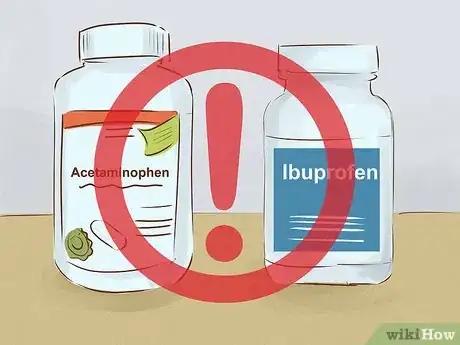
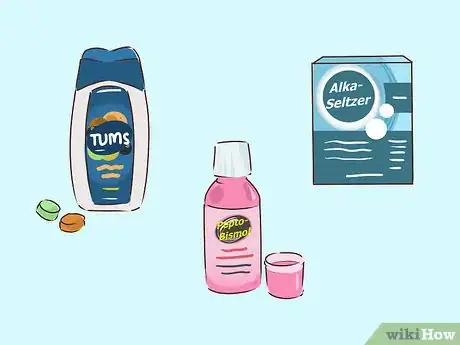
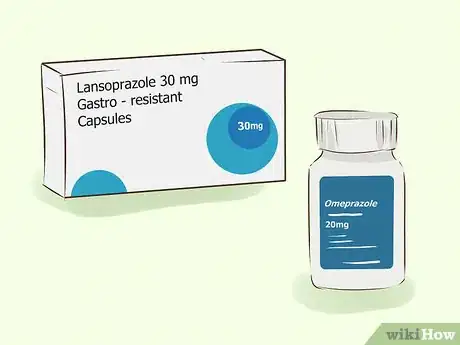
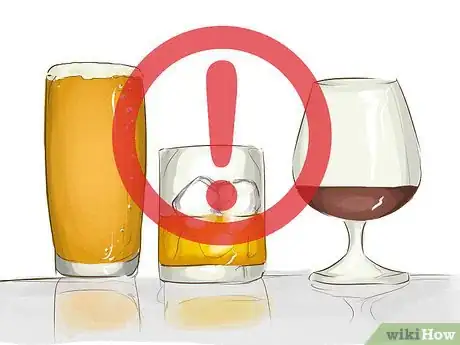
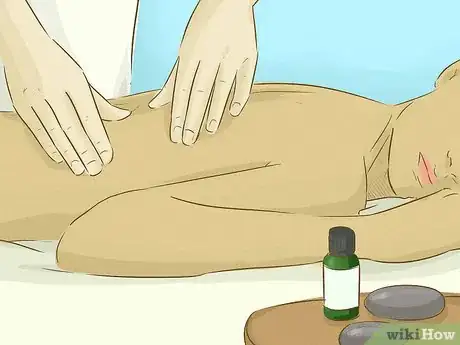
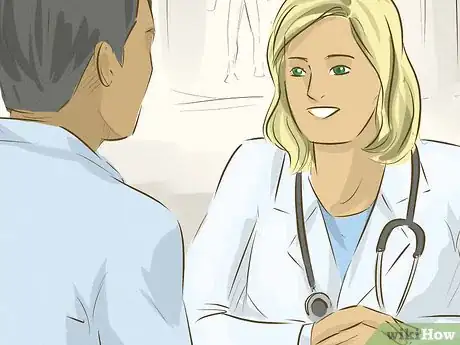
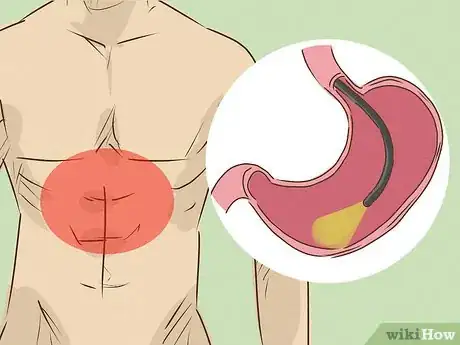
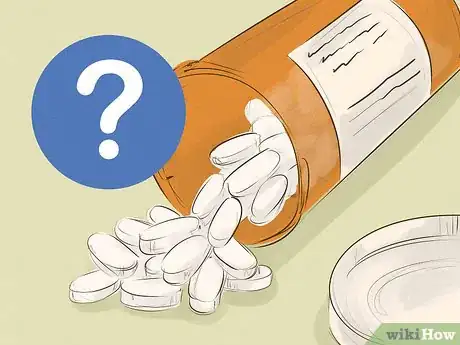
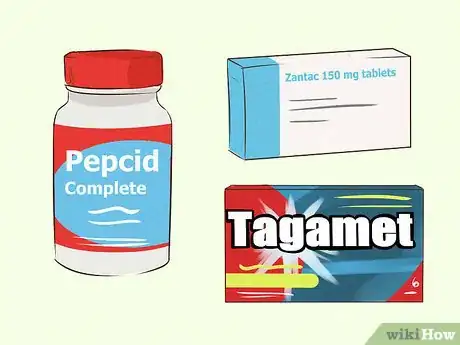
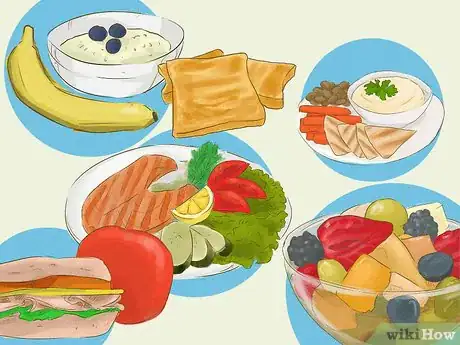
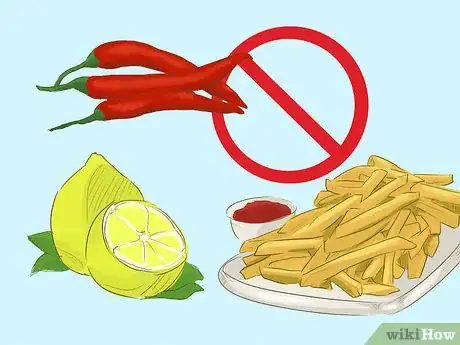
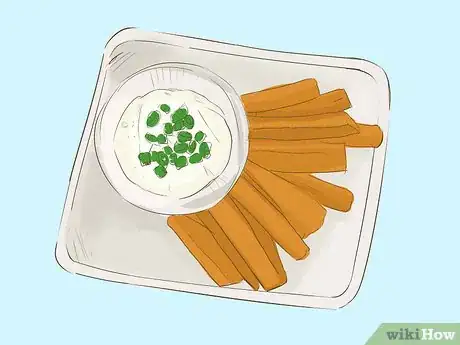
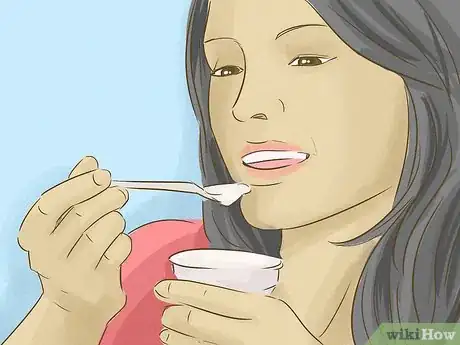
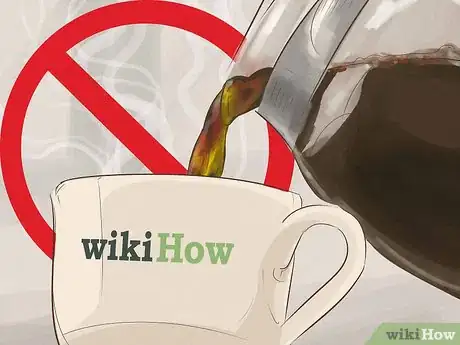
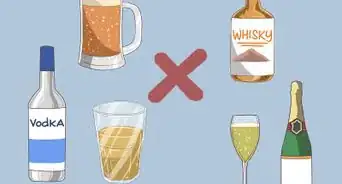
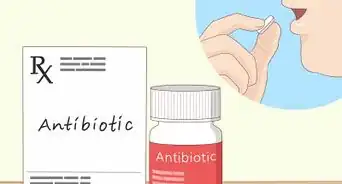

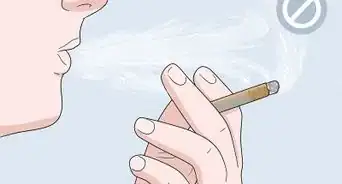
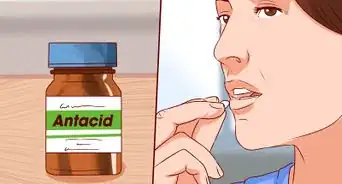
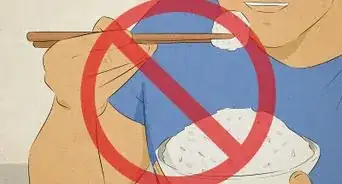
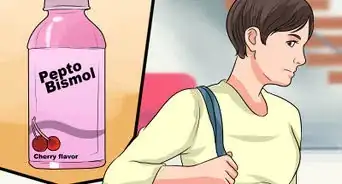
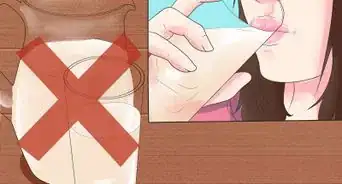
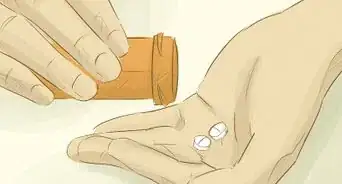
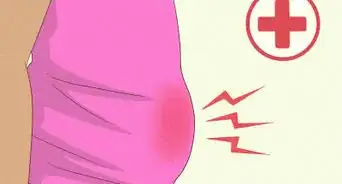
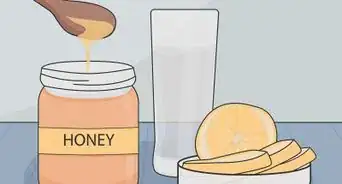
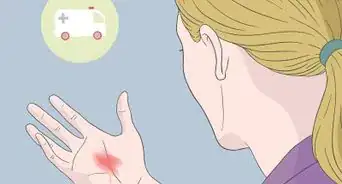
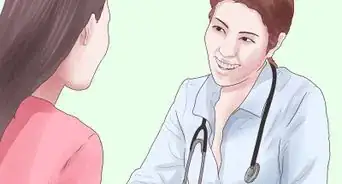
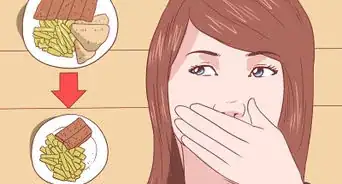









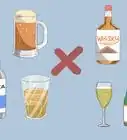
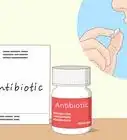





































Medical Disclaimer
The content of this article is not intended to be a substitute for professional medical advice, examination, diagnosis, or treatment. You should always contact your doctor or other qualified healthcare professional before starting, changing, or stopping any kind of health treatment.
Read More...